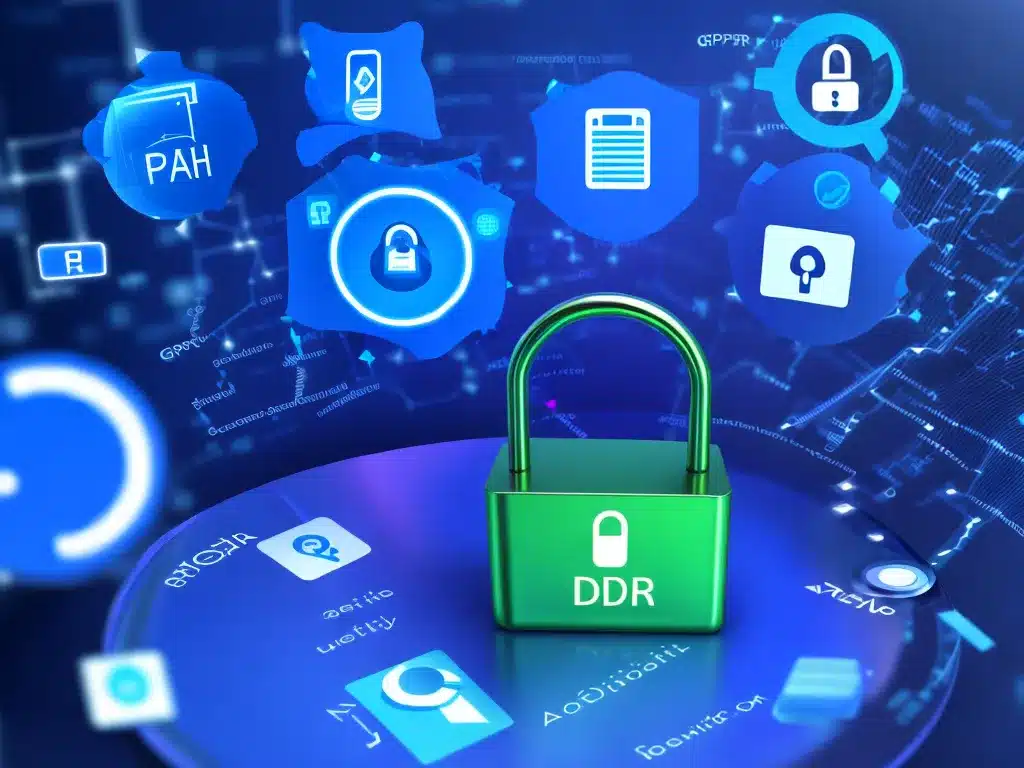
How GDPR Is Improving Data Security And Privacy In 2024
Introduction
In 2024, the General Data Protection Regulation (GDPR) has brought significant improvements to data security and privacy in the 5 years since it went into effect. As a cybersecurity professional, I have seen firsthand how GDPR has forced companies to take data protection more seriously and give individuals more control over their personal data. In this article, I will provide an in-depth look at how GDPR has enhanced data security and privacy across the EU and beyond.
Stronger Security Requirements
One of the biggest impacts of GDPR has been to strengthen the security requirements around personal data. Under GDPR, companies face steep fines if they fail to properly secure customer and employee data. This has led many organizations to implement more robust cybersecurity measures such as:
- Encryption of sensitive data both in transit and at rest
- Stronger access controls and identity management
- Improved security monitoring to quickly detect and respond to breaches
- Mandatory data protection training for employees
- Appointment of Data Protection Officers to oversee compliance
By holding companies accountable for securing data, GDPR has helped mitigate the rising threats of hacking, ransomware, and other cyberattacks. Companies have invested heavily in security technology and expertise to avoid the risks of non-compliance.
Transparency Around Data Usage
Another major improvement driven by GDPR is greater transparency into how personal data is collected and processed. Under the regulation, companies must clearly disclose to customers how their data will be used. GDPR also gives individuals the right to request copies of all the data a company holds on them.
This increased visibility into data practices has made people much more aware of privacy risks. Companies can no longer make vague, blanket claims about how data may be used. They must explicitly outline each purpose of data processing. This transparency enables individuals to make informed choices about sharing their personal information.
Stronger Consent Requirements
GDPR sets a high bar for obtaining valid consent from users for data collection and processing. Consent must be freely given, specific, informed and unambiguous. Pre-checked boxes or vague acceptance of terms no longer qualify as consent. Users must take clear, affirmative action to opt in.
These strict consent standards have curbed the rampant collection of user data without permission. No longer can companies bury consent within long terms of service. By strengthening consent requirements, GDPR upholds user autonomy and choice regarding their data.
Enhanced Individual Rights
At the heart of GDPR are expanded rights for individuals to control their data, including:
- Right to access – Individuals can request copies of their data and details on how it is processed.
- Right to erasure – Individuals can request deletion of their data.
- Right to rectification – Individuals can request correction of inaccurate or incomplete data.
- Right to restriction – Individuals can limit how organizations use their data.
- Right to data portability – Individuals can obtain their data and freely transfer it elsewhere.
By empowering people with these rights, GDPR enables individuals to take back ownership of their personal information. No longer are people passive actors with little say on how their data is exploited. GDPR gives them the tools to reclaim agency over their digital lives.
Increased Global Impact
While GDPR is an EU regulation, its impact has been felt worldwide. Many multinational companies have opted to overhaul their data practices globally rather than maintain separate standards for EU and non-EU users. Additionally, other countries including Brazil, Japan and South Korea have modeled new data protection laws after GDPR.
By laying out a comprehensive framework for data rights and privacy, GDPR has set a new global standard that has elevated expectations around data security everywhere. It has profoundly shaped the world’s approach to privacy in the 21st century.
Challenges Remaining
Despite its achievements, GDPR still faces ongoing challenges in enforcement and compliance. Regulators continue working to enforce fines against major violators. Many companies still struggle to fully adhere to GDPR’s numerous requirements. Additional policy refinements and case law will further define the scope and boundaries of the regulation.
However, the overwhelming consensus is that GDPR has been a major step forward for data protection. It has reminded companies that respecting user privacy is a business necessity, not an optional luxury. By putting individuals and their rights first, GDPR has redefined data security and privacy in the modern digital economy.












